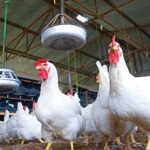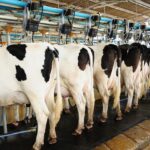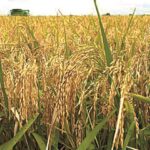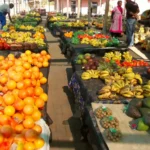1.0 BACKGROUND
The Federal Government of Nigeria has received a Facility from the African Development Bank (AfDB), International Fund for Agricultural Development (IFAD) and the Islamic Development Bank (IsDB) to finance the cost of the Special Agro-Industrial Processing Zones Program (SAPZ), and intends to apply part of the proceeds towards carrying out various consultancy services. The SAPZ Program is being implemented in the seven (7) States and the Federal Capital Territory (FCT). The States are Cross River, Imo, Kaduna, Kano, Kwara, Ogun and Oyo.
The overall development objective of the SAPZ programme is twofold: (1) Support the development of SAPZ in high food production areas to supply the domestic food market and create exportable surpluses; and (2) Capacitate smallholder farmers, small agro-processors and traders, and community-based service providers, including women and youth; to take advantage of the market demand created by the SAPZ to sustainably enhance their income, household food security and resilience to climate change.
The SAPZ program will follow a two-phased program approach. Under phase I (2022-2028), the Government and AfDB, over a period of 5 years, will set up enabling infrastructure and investment policies in targeted states. IFAD will operate over a period of seven years. This slightly longer period will allow IFAD to empower smallholders to take advantage of the SAPZs when they are fully operational. The program will be expanded into additional states in subsequent phases, based on lessons learned and the availability of funding.
In phase I, the program will support the set-up of SAPZs in the Federal Capital Territory and seven states, namely Kano, Kaduna, Oyo, Kwara, Ogun, Imo, and Cross River. IFAD will focus on Kano and Ogun states, leveraging its ongoing programs.
This Terms of Reference (ToR) is for consultancy services to carry out the profiling of Smallholder farmers and FOs for the FGN/IFAD-funded program titled Special Agro-processing Zones (SAPZ). The consultancy will take place in selected LGAs of FGN/IFAD/SAPZ funded States.
Through a participatory selection process involving local authorities and communities at start-up, each participating Local Government Area (LGA) will select two focus commodities from among high-potential value chains that have been pre-identified in site-specific feasibility studies conducted during appraisal: Cassava, Rice, Poultry, and Fisheries for the Ogun state – and Rice, Tomatoes, Groundnuts, and Sesame for Kano state.
Phase I will directly benefit 1.5 million households, including private sector agribusinesses and agro-processors, smallholder farmers, agroentrepreneurs and agro-dealers. IFAD investments, including through the Green Climate Fund (GCF), will target a total of 100,000 direct beneficiaries (and 500,000 indirect beneficiaries). Rural women and youth are core target groups. Opportunities for participation will be created for internally displaced persons and persons with disabilities.
The programme has four components namely:
➢Component 1: Infrastructure Development and Management for Agro-Industrial Hubs (AIHs). Under this AfDB-led component, the programme will support the FGN in developing and setting up SAPZs in high potential states.
➢Component 2: Agricultural Productivity, Production, Market Linkages and Value Addition in SAPZ Catchment Areas. Under this component, SAPZ’s objective is threefold: (i) support smallholder farmers and small operators to increase their productivity/production and capacity to add value to raw materials on a profitable and environmentally sustainable basis; and (ii) link them to the additional market outlets offered by the Agro-Industrial Hubs (AIHs), off-takers supplying the local and national market who operate in the target area, and small processors/traders supplying the local markets, including primary processors operating in the Agricultural Transformation Centres (ATCs); iii) enhance the resilience and adaptive capacity of smallholder farmers to climate change..
➢Component 3: Policy and Institutional Development Support. The objective of component 3 is to support the development of enabling policies, legislation, and regulation for SAPZs in Nigeria to create a conducive business environment for private sector investment and to address inefficiencies and market failures in agricultural value chains.
➢Component 4: Programme Coordination and Management. This component will ensure that the programme is efficiently and effectively managed to achieve expected results.
2.0 OBJECTIVES OF THE ASSIGNMENT
- The overall objective of the assignment is to engage reputable consultants who will undertake the mapping and analysis of all the stakeholders involved in Agricultural Transformation Centres in the selected LGAs viz D/Kudu, Makoda, Kumbitso, Tofa, Gabasawa, Minjibir, Shanono and Gwarzo LGA of Kano State. Specifically, the consultants shall:
I. Conduct a comprehensive geographical mapping of the targeted LGAs.
II. Identify key agricultural resources, including agricultural lands, water sources, and marketplaces.
III. Provide detailed information of Farmers organization as follows:
- Crops grown, production volumes, Land size capacity.
- Number of membership count (Women % and Youth %),
- Existing Structure and Governance of the FO, and the Legal status
IV. Assess the existing infrastructure, such as roads, bridges, and storage facilities, relevant to the agricultural value chain in targeted LGAs.
V. Map out existing private entities involved in production and processing and assess their existing production and processing technologies capacities, states and efficiency.
VI. Analyze socio-economic and environmental factors affecting agro-processing activities in the targeted States.
VII. Provide comprehensive information on the value chain actors for the various commodities viz: Rice, Tomato, Groundnut and Sesame.
VIII. Provide details of various farmers’ organizations and enterprise groups within the mapped area.
IX. Provide detailed maps and geospatial data for informed decision-making and program planning.
X. Recommendations and initiatives for FOs to enhance their market access, while: - Improving quality and production efficiency
- Value chain coordination and alliances
- Post harvest management
- Financial literacy and business acumen
- Value chain collaboration building, marketing and advertising
- Capacity building in logistics and business processes
Kindly download the attached documents for more details please.






Recent Comments